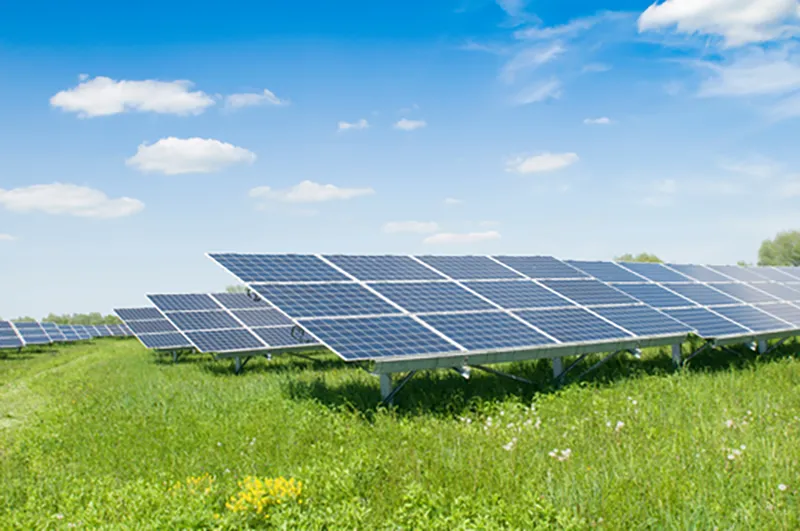
If you own land and do not plan to use it yourself, you have various options. You can either sell your land or generate income through land leasing. If you want to lease your land, it makes sense to thoroughly familiarize yourself with the conditions of land leasing in advance, from setting lease prices to the lease agreement. Below we answer all important questions about land leasing.





Trust the leading platform for land leasing
€ Transaction Volume
Projects
Different Countries
MW Capacity




Leasing Land: If you own land and want to lease it, you must pay attention to several things in the lease agreement. But why do you need a lease agreement and what should it contain?
Leasing Land: This is considered uncomplicated and is often concluded on agricultural land without a written contract. However, if you want to lease your land for more than two years, an oral lease agreement is invalid and accordingly a written contract should be concluded. In general, it is strongly recommended to draw up a written contract that is as detailed as possible. We have summarized below what belongs in a lease agreement.
1. Term
The lease agreement specifies the term for the land lease. The lease agreement can be concluded either for a fixed term or indefinitely.
2. Termination of the Lease Agreement
In addition, there are legal notice periods that must be observed. If you conclude an indefinite lease agreement, this is one year. For extraordinary terminations, you can terminate with a notice period of six months to the end of the year. If you decide to rent to a private person with an indefinite lease agreement, terminating the lessee is not easily straightforward. The lessee, on the other hand, has the legally prescribed right to a notice period of three months. If the lease agreement has a fixed term from the beginning, it automatically ends after the agreed period expires.
3. Determination of Lease Payment
Land Lease Price: The negotiated lease payment is also recorded in the lease agreement. A distinction is made between a fixed and a revenue-dependent lease payment. Both forms are explained further below.
4. Operating Costs
Operating costs can also be recorded in the lease agreement. These include street cleaning, garbage collection, property tax, sewage charges and building cleaning. Operating costs can be paid monthly or annually.
5. Usage Rights
The usage rights are also defined in the lease agreement. Among other things, the contract should describe exactly what is being leased and what profits may be generated from. If renovations or changes to the use of the land are planned, these should also be recorded in the lease agreement and conditions for handling after the lease expires should be established.
When planning to lease your land, the lease payment is set as part of the lease agreement. You negotiate the lease payment with the lessee of your land. The amount of the lease payment can be determined in the following ways.
Fixed Lease Payment
Lessor and lessee of the land can set a fixed lease payment. In this case, the lessor usually sets the amount of the lease payment and the lessee agrees.
Revenue-Dependent Lease Payment
Furthermore, the lessor has the option to set a revenue-dependent lease payment. The monthly lease payment to be paid is based on the revenue generated by the lessee. In this case, it is common to agree on a fixed base rent and set a share of the revenue on the land.
Professional Support for Land Leasing
Benefit from Milk the Sun's years of experience in brokering land for lease. We find the right lessee for your unused land area in the shortest possible time. We support you in processing the project, so you save on expensive marketing and complex sales. If you want to lease your land, you can access the world's largest network of photovoltaic investors at Milk the Sun and thus achieve the highest possible profit for your land. At Milk the Sun, only pre-vetted investors are offered for land leasing.




1. Have the Legal Security of the Contract Checked
Lease agreements can be complicated and extensive. When you offer your land on Milk the Sun, we support you throughout the entire land leasing process and check your lease agreement for gaps or potential difficulties.
2. Check the Lessee's Creditworthiness
If you want to lease your land, you should check the lessee's creditworthiness in advance, as with a classic rental agreement. When you process your project through Milk the Sun, you are generally only offered pre-vetted lessees.
3. Notice Periods
When leasing land, you should consider the termination of the contract before concluding the lease agreement. When you offer your land on Milk the Sun, we advise you on this. For leasing residential land, a notice period of six months applies according to § 584 BGB. Furthermore, it should be noted that termination can only occur at the end of the lease period and at the latest by the third working day before the expiry of the six-month period. In the event that the lease period spans more than 30 years, there is the possibility of termination with two years' notice.
4. Transfer Rights
For some types of land, the transfer of rights must also be considered when leasing land. For example, if land includes bodies of water and these waters are fishable, such a situation is usually resolved in the lease agreement. Even for land that is suitable for hunting due to its nature, certain regulations must be recorded in the lease agreement. If you decide to offer your land area on Milk the Sun, we will also support you in this point with our years of experience in brokering land leases.
Land Leasing: Below we discuss potential mistakes that you should avoid when leasing land.
1. Waiving the Term
According to § 585 (BGB), lease agreements concluded for a period longer than one year are considered indefinite. Thus, the notice period automatically extends by two years to the respective end of the lease year. This regulation should be considered when concluding the lease agreement.
2. No Oral Contract
As mentioned above, some lessors conclude oral lease agreements for their land area. However, oral contracts can lead to problems and disagreements. Therefore, it is generally advisable to conclude a written lease agreement.
3. Forgoing Expert Advice
When leasing land, it is important to ensure that all permits and regulations are complied with and that the lease agreement meets legal requirements. Benefit from the comprehensive and professional advice at Milk the Sun when you offer your land for lease on our PV brokerage portal.